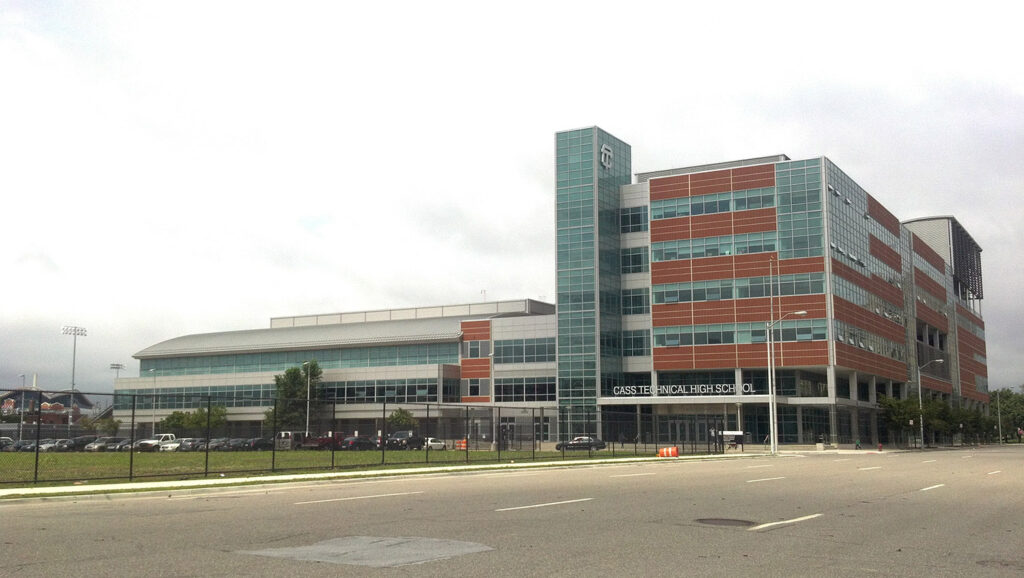Michigan taxpayers spent $20 million on a study to get a bunch of rent-seekers to tell taxpayers they want more money for public schools. Again.
Mainstream media pounced on their recently released study that stated Michigan’s public schools need $22.8 billion in repairs and renovations.
The organization that orchestrated this study was named the School Finance Research Foundation. Just seven years earlier, the School Finance Research Collaborative reported Michigan schools needed an estimated $3.6 billion more for the “true cost” of educating a student.
The similarities extend far beyond just the name and a report claiming underfunding. Although the 2018 School Finance Research Collaborative had an FAQ where one question asked, “Aren’t these studies just about more money?” Their answer? “No.”
(Even though that’s what both studies are about.)
The newer School Finance Research Foundation is a nonprofit that received $40 million in 2023, and its board is stacked with former and current Michigan public-school superintendents.
Wanda Robinson, the former Oakland Intermediate School District superintendent, is president of the board of the School Finance Research Foundation, and Michael DeVault, the superintendent of Macomb ISD, is a board trustee.
Robinson was a “collaborative member” of the earlier Michigan School Finance Research Collaborative and served with DeVault on the Collaborative’s Steering & Technical Committee. The advertisement for the position of executive director with the School Finance Research Foundation stated that person would have “frequent contact” with the School Finance Research Collaborative.
Both Robinson and DeVault have a history of criticizing the way public schools are funded in Michigan. They joined two other educators who all penned an op-ed in 2019 in the Detroit Free Press about the public education’s “broken funding formula.”
(It should be noted that “broken” system netted K-12 school districts in Michigan a then-record $14.8 billion in 2019, which has since jumped to $20.6 billion.)
They are part of a consistent drumbeat in this state to advocate for more funding for public schools.
It is led by a liberal industrial complex all synchronized to act as one movement. It includes the public education cottage industry groups (such as the Michigan Association of School Boards and teachers unions), the liberal non-profits (such as the Skillman Foundation, who helped fund the 2018 Collaborative study), academia (Michigan State University professor David Arsen is the go-to “expert” source when making a pitch for more school funding), and a complicit mainstream media to weave it all together.
State taxpayers have nothing comparable as a lobbying effort.
The more recent portrayal of the alleged dire financial situation these schools face by mainstream media is shameful.
The Detroit Free Press reported that aging school buildings look like: “Inefficient or antiquated HVAC systems. Crumbling roofs. And the decision between hiring a teacher or fixing one of these problems, school leaders said in a news conference March 20.”
Wait? Didn’t Michigan’s K-12 public schools just get $5.6 billion in federal Covid-19 relief? They aren’t even done spending that.
“We’re not talking about trying to do things that are outlandish or expensive,” Jason Mellema, superintendent of the Ingham Intermediate School District and a trustee of the School Finance Research Foundation, told the Detroit Free Press. “We’re talking about the basics. We’re talking about safety. We’re talking about infrastructure.”
The Lansing School District is the largest school covered by Ingham ISD. Lansing’s total revenues increased from $216.8 million in 2019 to $264.7 million in 2024, when adjusted for inflation. That’s an extra $47.9 million in 2024 when adjusted for inflation. And there’s no money for “the basics”?
“Turning to voters for local tax funding isn’t a sure thing,” the Detroit Free Press continued. “For example, Hazel Park School District’s 2024 $150 million bond proposal, which would have included building security upgrades, HVAC repairs, a new elementary school building and more, was met with opposition from community members. The bond failed on the May 2024 ballot, with 66% voting no.”
The median household income in Hazel Park was $62,878 in 2023. The average salary of a Hazel Park teacher was $70,481 in 2023. Total revenues for the school district have increased from $58 million in 2019 to $72.3 million in 2024.
The Hazel Park taxpayers have done their part. More and more taxpayers may be thinking the same thing.
Consider that, in 2024, 42 school bonds were rejected and 41 passed. In 2018 and 2019—before the pandemic and the injection of billions into K-12 schools—70% of the 111 school bond proposals were approved.
Voter fatigue may be setting in, as taxpayers tire of the never-ending clamor for more school funding.
Tom Gantert is a contributing writer for Michigan Enjoyer.



